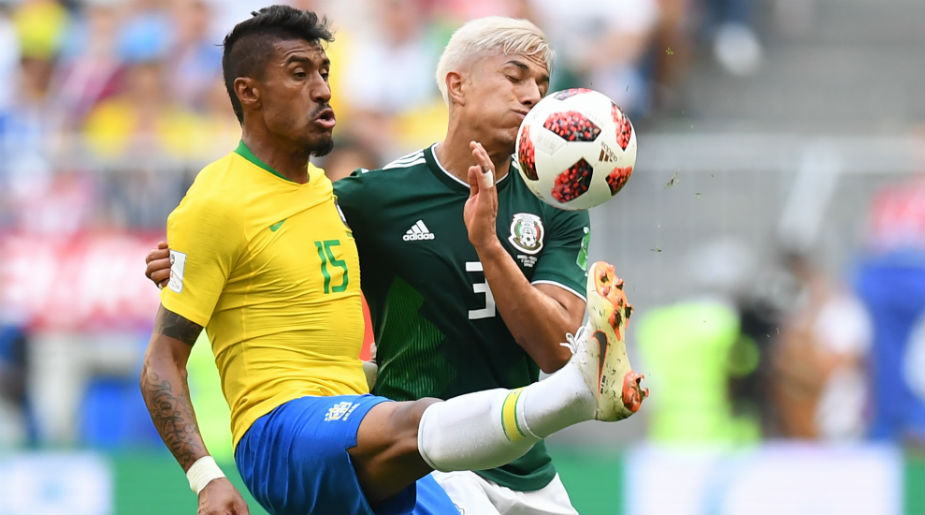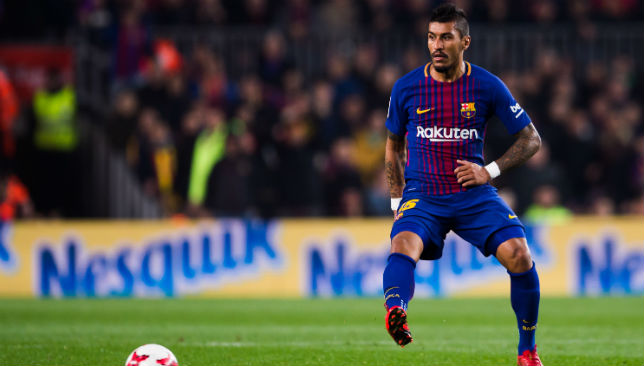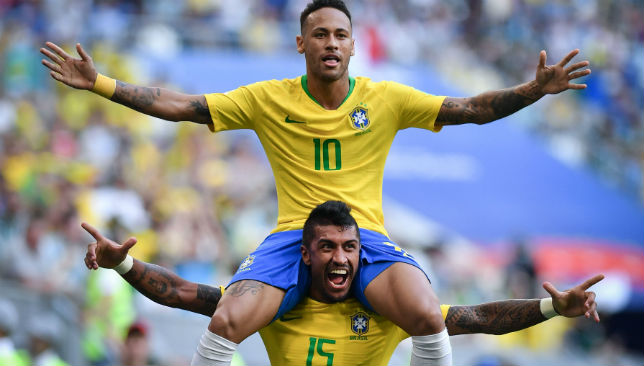
Here are two words: Brazilian football.
Now close your eyes and allow your mind to wander for a while, led by those two words.
What images were evoked? Pele, no doubt, featured somewhere in your recollections – perhaps his famous chip and volley goal as a teenager in the 1958 World Cup Final, or his casual but glorious assist for skipper Carlos Alberto at the climax of the 1970 Final.
Depending on your age, you might also have thought of the creative skills of players like Zico or Socrates, the goalscoring exploits of Romario or (the original) Ronaldo, or the gap-toothed joyful exuberance of Ronaldinho.
More recent images to come to mind perhaps, were Neymar dancing past defenders, Philippe Coutinho blasting long-range shots towards goal, or Marcelo striding with poise and athleticism down the left wing.
But now picture Paulinho, lumbering his way through midfield with heavy touches and clumsy passes, barging past teammates and opponents alike in a ferocious show of occasionally ill-directed muscle-power.
Not exactly the prototype Brazilian footballer, is he?
Except he is, and Paulinho’s strong but silent performance in Monday’s 2-0 last-16 victory over Mexico served to show why he, just as much as Neymar, should be regarded as the encapsulation of his team’s efforts to claim a sixth world title in Russia this summer.
Paulinho is certainly an enigma. After a spectacularly unsuccessful spell in English football with Tottenham, he was derided as the worst player in the London club’s history and seemingly consigned to the backwaters of Chinese football, never to appear again in the wider world’s consciousness.

But then came an unexpected renaissance, with his eye-catching performances in China – under the management of Brazilian coaching legend Luiz Felipe Scolari – allowing him to regain his place in the national team and, eventually, earning a big-money transfer to none other than Barcelona.
Paulinho divided Barca fans when he was signed, and he does still.
Some see him as a clumsy clod-hopper whose limited technique disowns everything the club stands for; others regard him as an indispensable and reinvigorating member of a double-winning team, who could have also rescued their Champions League campaign if he hadn’t been left on the bench for the embarrassing exit in Roma.
Whatever you think, he was certainly an important member of Barca’s title triumph, making 34 league appearances – more than any other outfield player except Lionel Messi and Ivan Rakitic – and finishing third in the team’s goalscoring charts behind Messi and Luis Suarez.
And how he’s playing a similarly fundamental role for Brazil, maintaining his status as an unquestioned member of the starting XI and showing his scoring abilities with a well-taken opener against Serbia in the final group game.
But other than his occasional goals, what is it about this strange player, who looks so limited but is managing to simultaneously hold down starting slots for both Barcelona and Brazil? What does he actually do?
It’s worth asking because his importance doesn’t really show up on the stats sheet.
In Monday’s game with Mexico, for example, he had fewer touches than any other Brazil player except striker Gabriel Jesus (38). He attempted just one shot, delivered only one cross, and registered his team’s joint lowest pass completion rate (80 per cent). He wasn’t credited with any interceptions or clearances, and only made one tackle – compared to six by midfield partner Casemiro.

What does he do, then?
The key to Paulinho’s importance is those awkward intangibles. He’s in the right place, at the right time, to deliver the right thing for his team – whatever that might happen to be, even if it’s as basic as getting in the way of the opposition.
He has great game intelligence, complementing the more talented performers in his side by keeping a disciplined position, whilst also having the physical strength and energy to cover both ends of the pitch – tidying up on the edge of his own box at one moment and then supporting an attack on the edge of the opposition’s the next.
Other than his occasional long-range shots, not much that he does is flashy. But he is efficient, playing a major role in the solid organisational structure which allowed Barcelona to base their title triumph on an excellent defensive record (29 goals conceded in 38 games) and is now helping Brazil to do the same (one goal allowed in four games).
Paulinho can’t dribble past five opponents or thread the needle of the opposition defence with a perfect pass, but he does keep his team’s shape, maintain his discipline and make Brazil difficult to play against.
Even though you might not be able to notice Paulinho too much when he’s there, you certainly would notice it if he wasn’t. And for those reasons, this one-time Premier League reject could well soon end up with a World Cup winner’s medal around his neck.